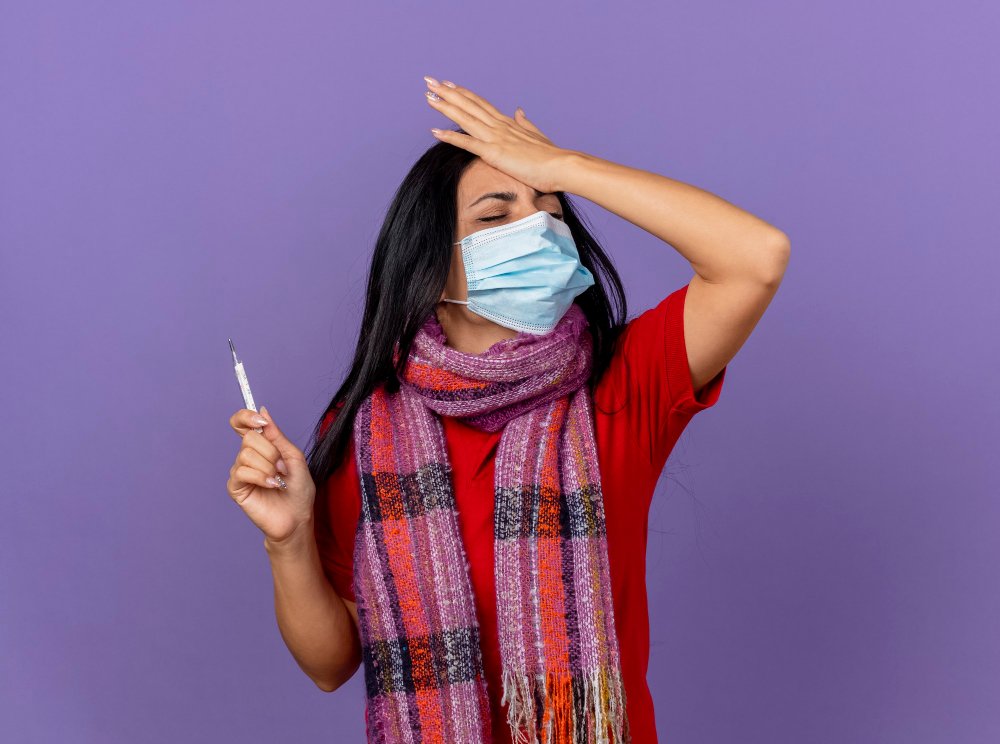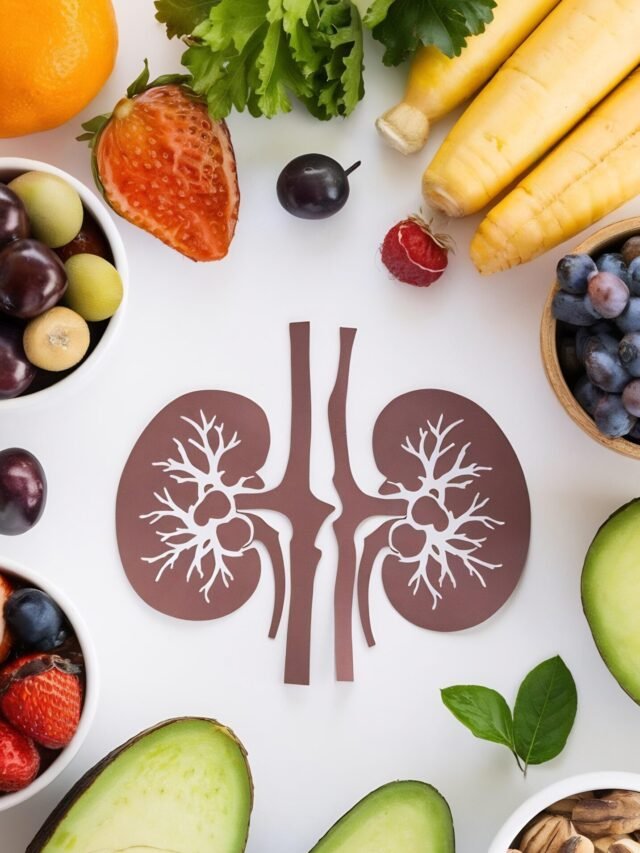Health
Stay Safe and Strong: Understanding Viral Fever Symptoms and How to Treat Them

A common sickness that many people get at some point in their lives is viral fever. Anyone can be affected, from kids to adults, and although it’s usually not dangerous, it can cause a great deal of discomfort. You can recover more quickly and protect those around you by being aware of the symptoms, taking preventative measures, and learning about the best treatment options.
Everything you need to know about viral fever will be covered in this essay in basic, understandable language. This advice will help you stay strong and safe, regardless of whether you are feeling ill or want to get ready.
Viral Fever: What Is It?
When your body responds to a viral infection, you get viral fever. When these microscopic bacteria infiltrate your body, your immune system reacts by raising your body temperature in an attempt to combat the illness. Antibiotics cannot be used to treat viral infections, in contrast to bacterial infections. Within a few days, the majority of viral fevers resolve on their own.
The flu virus, cold viruses, dengue virus, chikungunya, and other viruses are common causes of fever. Other symptoms that are frequently present with viral fever aid medical professionals in determining the most effective course of treatment.
Common Symptoms of Viral Fever
The symptoms of viral fever can vary depending on the type of virus, but some signs are common across many viral infections. Here are the most frequent symptoms you may notice:
-
High Body Temperature (Fever): Usually starts suddenly, with temperature rising above 100.4°F (38°C). Fever can be mild or high and may last for a few days.
-
Chills and Shivering: You may feel cold and experience shaking as the body tries to raise its temperature.
-
Body Aches and Joint Pain: Muscle pain and joint discomfort often come along with fever.
-
Headache: A dull or throbbing headache is common during viral fever.
-
Fatigue and Weakness: Feeling tired and lacking energy is a frequent complaint.
-
Sweating: As the fever fluctuates, you may sweat to cool down.
-
Loss of Appetite: It’s common to lose interest in food during fever.
-
Cough, Sore Throat, or Runny Nose: In some viral infections like the flu, cold-like symptoms appear.
-
Nausea or Vomiting: Sometimes, fever is accompanied by stomach upset.
-
Skin Rashes: Certain viruses can cause redness or rash on the skin.
When Should You See a Doctor?
While most viral fevers improve on their own, it is important to see a doctor if:
-
The fever lasts longer than 3 days.
-
The temperature is very high (above 104°F or 40°C).
-
You experience difficulty breathing, chest pain, or persistent cough.
-
You have severe headaches, stiff neck, or confusion.
-
There are signs of dehydration such as dry mouth, little or no urine, dizziness.
-
You notice unusual rashes or bleeding.
-
You have underlying health problems like diabetes, heart disease, or a weak immune system.
Early medical advice can prevent complications and help you get the right treatment.
How to Take Precautions Against Viral Fever
Preventing viral fever involves simple steps that reduce the risk of catching or spreading infections:
-
Practice Good Hand Hygiene: Wash your hands regularly with soap and water for at least 20 seconds, especially after coughing, sneezing, or touching public surfaces.
-
Avoid Close Contact: Keep distance from people who are sick or showing symptoms of fever, cough, and cold.
-
Use Masks When Necessary: Wearing a mask in crowded places or when you are unwell can block virus transmission.
-
Disinfect Common Surfaces: Clean objects like doorknobs, phones, and remote controls frequently.
-
Avoid Touching Your Face: Your eyes, nose, and mouth are entry points for viruses.
-
Eat a Balanced Diet: Good nutrition strengthens your immune system.
-
Stay Hydrated: Drinking plenty of water helps your body fight infections.
-
Get Enough Rest: Proper sleep supports immune health.
-
Avoid Sharing Personal Items: Do not share towels, utensils, or drinks with others.
-
Follow Vaccination Guidelines: Vaccines like the annual flu shot help prevent some viral infections.
How to Treat Viral Fever at Home
Since viral fevers generally resolve on their own, home care plays a big role in recovery. Here are simple, effective steps you can take:
1. Rest Well
Your body needs energy to fight off the virus. Take it easy and avoid strenuous activities.
2. Keep Hydrated
Drink lots of fluids like water, coconut water, soups, and herbal teas. This helps avoid dehydration caused by fever and sweating.
3. Use Fever-Reducing Medicines
Over-the-counter medicines such as paracetamol (acetaminophen) or ibuprofen can lower fever and reduce pain. Always follow the recommended dose and instructions on the label.
4. Dress Lightly
Wear lightweight and comfortable clothes to help your body cool down.
5. Use a Lukewarm Compress
Apply a lukewarm water-soaked cloth on your forehead to ease discomfort.
6. Eat Nutritious Food
Even if appetite is low, try eating light and healthy meals like fruits, vegetables, and soups.
7. Avoid Antibiotics Unless Prescribed
Antibiotics do not work against viruses and should only be used if a doctor confirms a bacterial infection.
When to Obtain Emergency Assistance
If you or someone under your care experiences any of these warning signs, seek medical help right away:
- Struggling to breathe or experiencing shortness of breath
- Intense chest pain
- Ongoing vomiting or diarrhea
- Confusion or trouble waking up
- Seizures or convulsions
- Indicators of dehydration (dry mouth, sunken eyes, minimal urination)
- Bleeding from any part of the body or frequent bruising
Conclusion
Viral fever is a common occurrence but is generally manageable with appropriate knowledge. Early recognition of symptoms enables you to take precautions and effectively manage the fever at home. Prioritizing rest, hydration, and monitoring for warning signs are essential steps towards recovery. It is important to practice good hygiene and avoid close contact with those who are infected in order to protect yourself and your family.
If your fever persists beyond the typical duration or if you experience severe symptoms, it is important to seek medical advice promptly. By staying informed and cautious, you can remain safe and resilient even in the face of viral fever.
By following these simple tips and understanding viral fever clearly, you will be better prepared to take care of yourself and those around you. Stay healthy!
-

 Health4 weeks ago
Health4 weeks agoWhat Happens When You Drink Black Coffee Every Day for 30 Days?
-

 Technology4 weeks ago
Technology4 weeks agoPerplexity AI Now on WhatsApp: Ask Questions, Get Summaries, Generate Images & More
-
![ChatGPT 5 Launched: Who Can Access It, How to Use It & Is It Free? [2025 Guide]](https://www.regularstation.com/wp-content/uploads/2025/08/2DAdWvVdE7ivGpRiqcLMfU-400x240.jpg)
![ChatGPT 5 Launched: Who Can Access It, How to Use It & Is It Free? [2025 Guide]](https://www.regularstation.com/wp-content/uploads/2025/08/2DAdWvVdE7ivGpRiqcLMfU-80x80.jpg) Technology4 weeks ago
Technology4 weeks agoChatGPT‑5 Launched: Who Can Access It, How to Use It, and Is It Free?
-

 Money4 weeks ago
Money4 weeks agoJSW Cement IPO Opens: GMP, Price, Subscription Status, Review & Should You Invest?
-

 Health4 weeks ago
Health4 weeks agoCoconut Water Isn’t for Everyone: 6 People Who Should Avoid It
-

 Health2 weeks ago
Health2 weeks ago5 Best Protein Sources for Vegetarians and Non-Vegetarians








